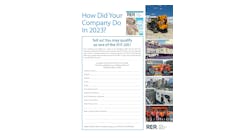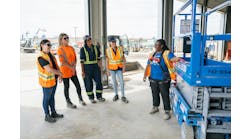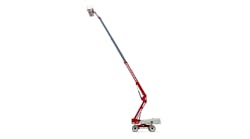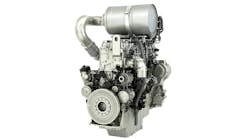When it comes to the economy and world affairs, it's best to expect the unexpected. I'd love to be able to tell you that I foresaw the current European financial crisis coming a year ago, but I didn't. Nor did I expect the depths of the latest recession, and neither did any economist I can think of. After the fact, quite a few of them said they knew it all along, but on further examination of their records, they'd not, apparently, thought it important enough to mention or to warn anybody about the imminent bursting of the housing bubble.
So given that most of us don't really have a clue about the future, the recent signs of life in the rental industry seem to belie the notion that we're about to enter into the second dip of a double-dip recession. Yes, there are some that would call the optimistic numbers coming out of public rental companies as they presented their strong third-quarter results just a matter of interpretation, and of course a positive impression goes a lot farther on Wall Street than a negative one. Others might argue being up 20 percent coming out of such a deep trough doesn't mean anything. But talking to rental people around the country lately I've sensed far more optimism than I have in a long time. Their numbers are up — perhaps not dramatically — and their customers are working more than they have during the past few years.
As I said, one can't always foresee the future. Yes the European debt crisis could turn more worrisome should Greece or another country default on its debts. A serious terrorist attack such as occurred 10 years ago could damage the economy. And there is still a lot of hesitation in the construction marketplace, which is far from recovered. One could argue that rental companies are posting higher utilization numbers because they have far less fleet, so what will happen when they start buying large orders of new equipment again?
One rental company executive, to whom I spoke recently about this month's cover story, said he didn't think publishing it was a good idea, fearing that this article would send droves of rental companies to seek the next big shale discovery or oil strike, wanting to be right there the next time oil begins to flow, or wanting to set up shop in one of the boomtowns near where shale exploration is going hot and heavy. Nope, I responded, not likely to happen. Do you think it's easy to do business in boomtown? Do you know what it costs to buy, rent or lease property these days in Fort McMurray or Williston, N.D., or anywhere around the Marcellus shale? Do you think it's easy to keep your mechanics happy in towns where taco makers make $15 to $20 an hour and McDonald's gives out signing bonuses? What do you think you'll have to pay your counter staff if the guys down the street who can barely read are flipping burgers for $15 an hour?
No I don't think that every rental company out there is going to follow the gold rush and try to strike it rich somewhere. This industry is made from hard work, not get-rich-quick lucky strikes. It takes hard work, preparation and a lot of brainpower. There aren't very many shortcuts. And, as you'll read when you read the story, even the rental companies that are near the energy markets have to search for their niche and make the right contacts. As one rental company executive said, his company got a contract to provide a solar power project after a couple of years of discussions and proposals. It didn't happen overnight. And while, yes, here and there a hot strike occurs and there's more demand than supply, it doesn't stay that way for long.
When there's competition, customers will look for the same qualities that have always governed this business — reliability, dependability, security of supply, equipment that runs well, and service. In the energy market, the expectation is often for the latest technology. As one salesman who rents to refineries and pipeline jobs told me, those customers can spot something wrong with the equipment before it ever gets off the delivery truck. So you'd best be very well prepared if you want to do business in those industries.
As for the double dip, let's hope that expression soon becomes forgotten, relegated to the ice cream parlor. I know I need to watch my weight, but when I see those 30 flavors, I can't decide sometimes. So I go for the double scoop. Or the double dip.





